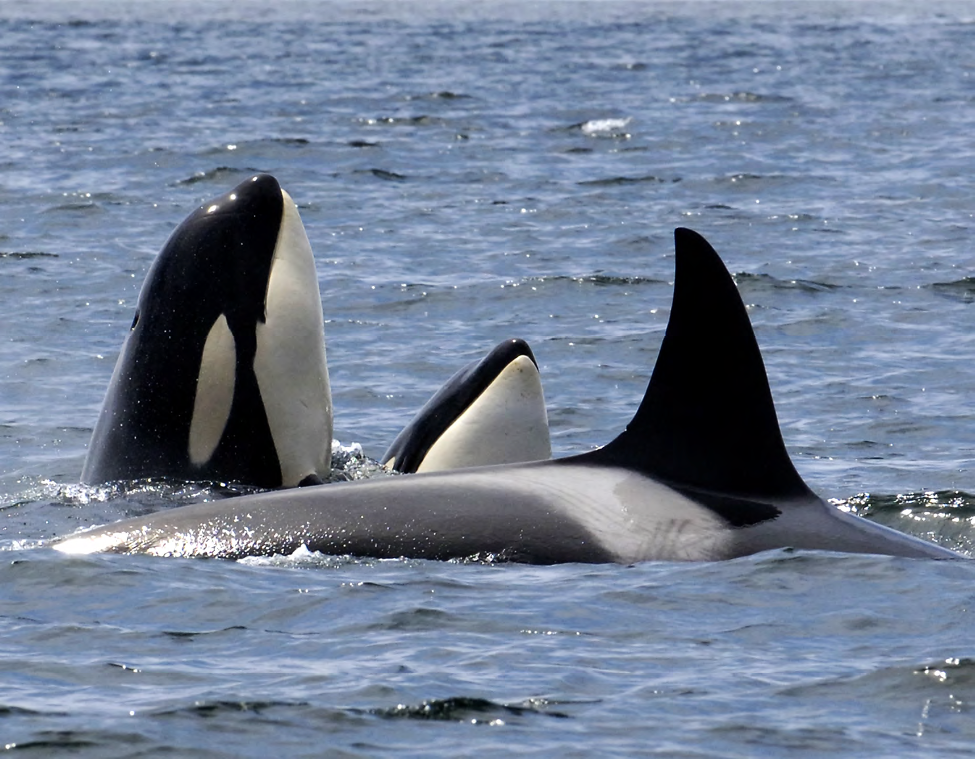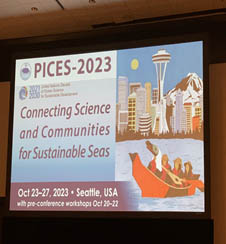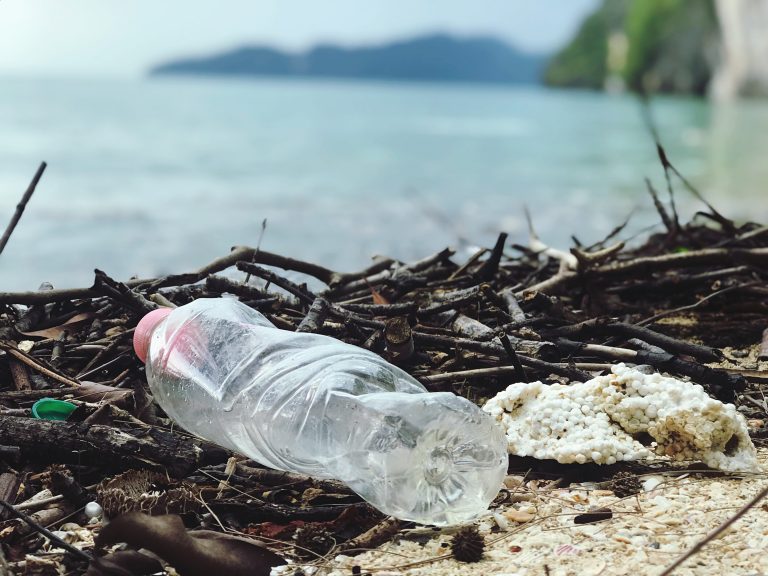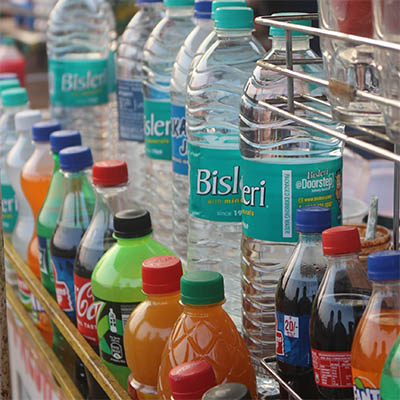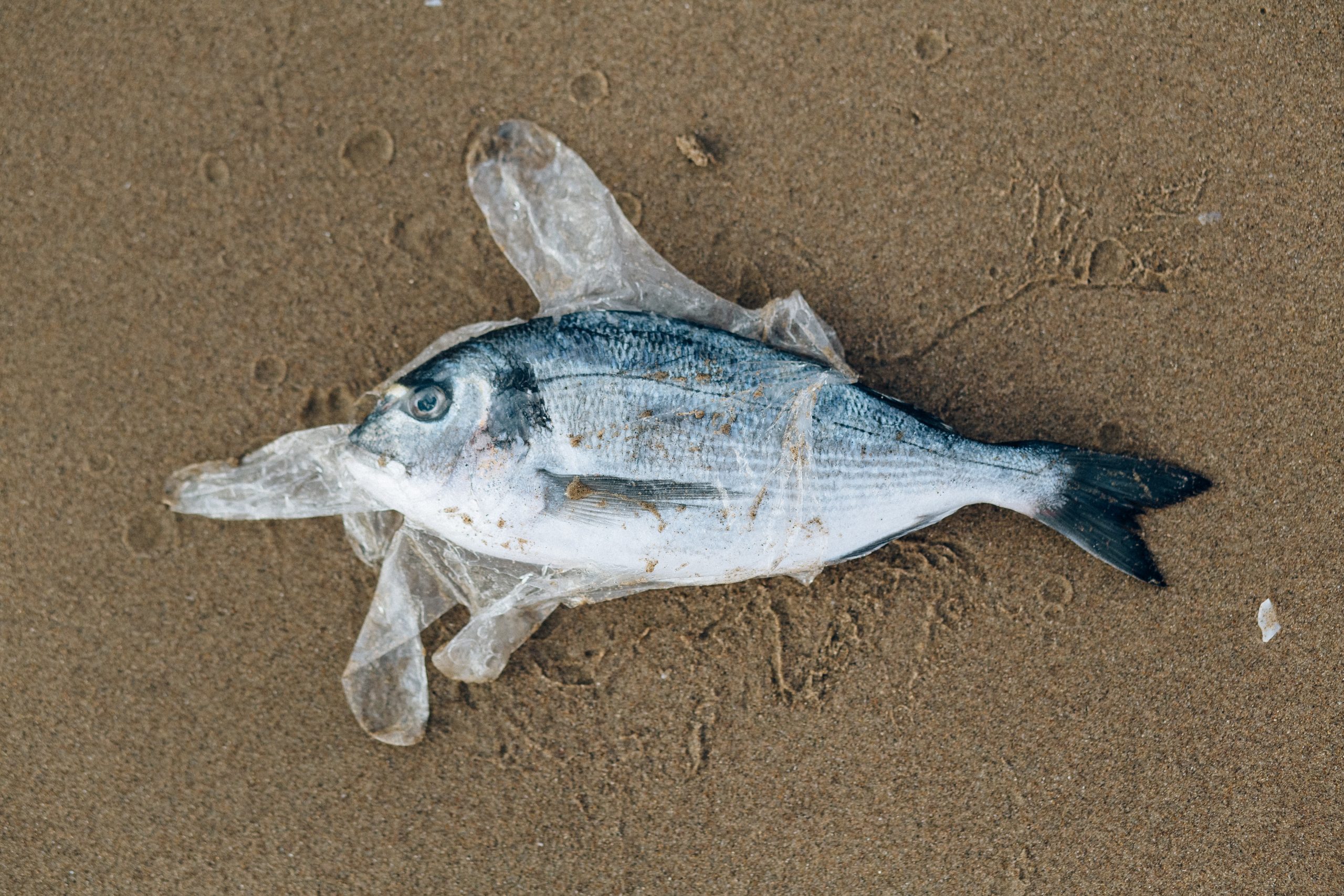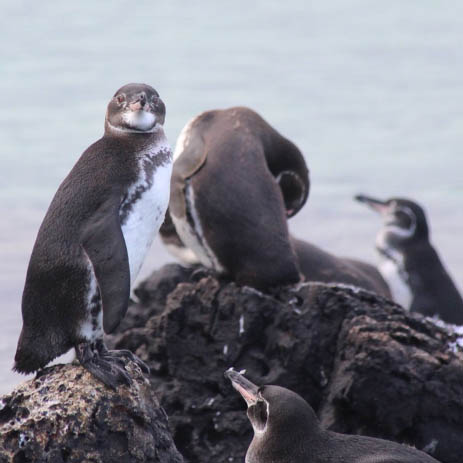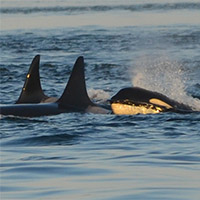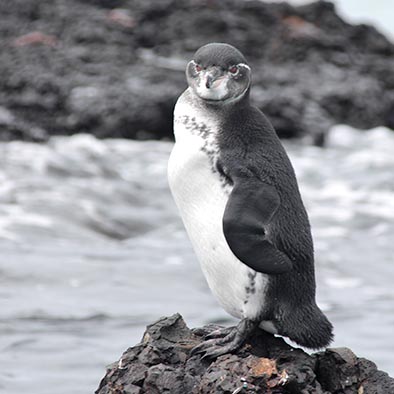
|
Honorary Research Associate and Principal InvestigatorOcean Pollution Research Unit (OPRU) DegreesPhD (Environmental Toxicology) School of Resource and Environmental Management, Faculty of Environment, Simon Fraser University, Burnaby, British Columbia, Canada |
Contact Information
Email: j.alava@oceans.ubc.ca
Phone: (604) 291-0019
Website: https://oceanpollution.oceans.ubc.ca/
Facebook: ubcoceanpollution
Twitter: UBC_OPRU
Twitter: @pinnipedo
Linkedin: LinkedIn
ResearchGate: Juan Jose Alava
Biography
Dr. Juan José Alava, originally from Ecuador, is now based out of Canada. He is a marine eco-toxicologist/environmental toxicologist, environmental scientist, and conservation biologist. His current research envisions the assessment of the pollution footprint and hazard risk of plastics and microplastic in the global oceans and food-web bioaccumulation modelling of microplastics in marine and coastal food webs as part of the Nippon Foundation-Ocean Litter Project at the Institute for the Oceans and Fisheries-IOF (University of British Columbia, UBC), led by him with his graduate students. As Ecuadorian-Canadian and part of the Latin American-Canadian minorities, Juan José leads the Ocean Pollution Research Unit (OPRU) at IOF (UBC), where he focuses on the assessment of environmental pollutants and multiple-anthropogenic stressors and impacts (i.e., ocean pollution, climate change, fisheries interactions and bycatch mitigation strategies) on marine fauna and ecosystems, using marine mammals, seabirds, sea turtles, large pelagic fish and other top predators as sentinels of ocean health (i.e., “the canaries in the coal mine”). He also serves as an Adjunct Professor at the School of Resource and Environmental Management, Simon Fraser University, and collaborates as a Research Associate Member with the ESPOL Polytechnic School (Guayaquil, Ecuador), the Galapagos National Park, and the Charles Darwin Foundation to conduct ecotoxicological research and conservation efforts in the Galapagos Islands. He has studied several marine species, including Galapagos pinnipeds (Galapagos sea lions and fur seals), Steller sea lions, humpback whales, bottlenose dolphins, and killer whales, as well as sea turtles and seabirds. He also has a passion for investigating tropical parasites in humans and aquatic/marine organisms and conducting research in public and environmental health. Juan José is also interested in pursuing research in ocean governance, community-grounded solutions, and ocean equity.
Juan José is the pioneer in marine mammal ecotoxicology in the Galapagos Islands and Ecuador as he initiated the first studies of persistent organic pollutants (POPs) in Galapagos sea lions and other species, as well as the first study of POPs and mercury in bottlenose dolphins in the Gulf of Guayaquil, Ecuador. He volunteers as the Science Director for the Ecuadorian Foundation for the Study of Marine Mammals (Fundación Ecuatoriana Para el Estudio de Mamíferos Marinos, FEMM) to support and advance research and conservation of marine mammals in Ecuador and the southeastern Pacific Ocean. He was the Editor of “Tropical Pinnipeds: Bio-Ecology, Threats and Conservation (Alava, 2017); a contributor author for the IPCC Special Report on the Ocean and Cryosphere in a Changing Climate (Chapter 5, Changing Ocean, Marine Ecosystems, and Dependent Communities); the leading Editor/coordinator of the PICES-Report of Working Group 31 on Emerging Topics in Marine Pollution; and Expert Member of the Southern Resident Killer Whale-Technical Working Group on Contaminants. He is an Associate Editor for Frontiers in Marine Science (Section: Marine Pollution), Journal of Marine Science and Engineering, and Co-Editor of Aquatic Mammals. He is a member of The Scientists’ Coalition for an Effective Plastics Treaty. Juan José has contributed with > 136 peer-reviewed publications. He was selected as a member of the Academia of Sciences of Ecuador in 2014.
Research Interests/Keywords
marine ecotoxicology, ocean plastics’ pollution, environmental toxicology and chemistry; food web-bioaccumulation modeling of pollutants, environmental impact assessment, marine policy, sustainability science, ocean and coastal management, ocean equity, public health; climate change science, adaptation and mitigation; marine ecology, conservation biology, tropical biodiversity and ecology, fishery science and management, impact of climate change in marine organisms and fisheries, population dynamics, biology and conservation of marine mammals, birds and sea turtles; sea turtles and marine mammals’ ecotoxicology, field ornithology; aquatic microbiology; eco-toxicological risk assessment; tropical parasitology and conservation medicine.
Selected Publications:
Alava, J.J., Tirapé, A., Denkinger, J., Calle, P., Rosero, R. P., Salazar, S., Fair, P.A., and Raverty, S. 2024. Endangered Galápagos sea lions and fur seals under the siege of lethal avian flu: a cautionary note on emerging infectious viruses in endemic pinnipeds of the Galápagos Islands. Frontiers in Veterinary Science 11(1457035):1-6. https://doi.org/10.3389/fvets.2024.1457035
Kazmiruk, T., Alava, J.J., Palsson, E., and Bendell, L. 2024. Sorption of trace metals by macro- and microplastics within intertidal sediments: Insights from a long-term field study within Burrard Inlet, British Columbia, Canada. Science of the Total Environment, 951(175413): 1-14. https://doi.org/10.1016/j.scitotenv.2024.175413
Brander, S.M., Senathirajah, K., Fernandez, M.O., Weis, J.S., Kumar, E., Jahnke, A., Hartman, N., Alava, J.J., Farrelly, T., Almroth, B.C. and Groh, K.J., Syberg, K., Buerkert, J.S., Abeynayaka, A., Booth, A.M., Cousin, X., Herzke, D., Monclús, L., Morales-Caselles, C., Bonisoli-Alquati, A., Al-jaibachi, R., and Wagner, M. (2024). The time for ambitious action is now: Science-based recommendations for plastic chemicals to inform an effective global plastic treaty. Science of the Total Environment, 949 (174881):1-11. https://doi.org/10.1016/j.scitotenv.2024.174881
Zhang, C., Li, L., Alava, J.J., Yan, Z., Chen, P., Yasmeen Gul, Y., Wang, L., and Xiong, D. 2024. Female zebrafish (Danio rerio) exposure to polystyrene nanoplastics induces reproductive toxicity in mother and their offspring. Aquatic Toxicology, 10 (107023): 1-9. https://doi.org/10.1016/j.aquatox.2024.107023
Alava, J.J., and Rosero, R. P. 2024. The Northernmost Record of a Stranded Southern Right Whale (Eubalaena australis) Calf in Ecuador’s North Coast: Notes on Stranding Causes and Distribution Expansion in the Southeastern Tropical Pacific. Aquatic Mammals, 50(5), 373-382, https://doi.org/10.1578/AM.50.5.2024.373
McTavish, K., Alava, J.J., Brown, T., Crossland, M., Dangerfield, N., Hickie, B., Ross, P.S., & Tillmanns, A. 2024. A Framework for the derivation of environmental quality guidelines that protect apex marine mammals from persistent organic pollutants (POPs). Can. Tech. Rep. Fish. Aquat. Sci. 3582: viii + 29p. https://publications.gc.ca/site/eng/9.931293/publication.html
Baztan, J., Jorgensen, B., Carney Almroth, B., Bergmann, M., Farrelly, T., Muncke, J., Syberg, K.,
Thompson, R., Boucher, J., Olsen, T., Alava, J.J., Aragaw, T.A., Bailly, D., Jain, A., Bartolotta, J., Castillo, A., Collins, T., Cordier, M., De-Falco, F., Deeney, M., Fernandez, M., Gall, S., Gammage, T., Ghiglione, J-F., Gündoğdu, S., Hansen, T., Issifu, I., Knoblauch, D,, Wang, M., Kvale, K., Monsaingeon, B., Moon, S., Morales-Caselles, C., Reynaud S, Rodríguez-Seijo, A., Stoett, P., Varea, R., Velis, C., Villarrubia-Gómez, P., and Wagner, M. 2024. Primary Plastic Polymers: urgently needed upstream reduction. Cambridge Prisms: Plastics 2, e7, 1-2 https://doi.org/10.1017/plc.2024.8
McMullen, K., Calle, P., Alvarado‐Cadena, A., Kowal M.D., Espinoza, E., Domínguez, G.A., Tirapé, A., Vargas, F.H., Grant, E., Hunt, B.P.V., Pakhomov, E.A., and Alava, J.J. 2024. Ecotoxicological Assessment of Microplastics and Cellulose Particles in the Galápagos Islands and Galápagos Penguin Food Web. Environmental Toxicology & Chemistry 43(6): 1442-1457. https://doi.org/10.1002/etc.5874
McMullen, K., Vargas, F.H., Calle, P., Alvarado-Cadena, O., Pakhomov, E., and Alava, J.J. 2024. Modelling microplastic bioaccumulation and biomagnification potential in the Galápagos penguin ecosystem using Ecopath and Ecosim (EwE) with Ecotracer. PLoS ONE 19(1): e0296788. https://doi.org/10.1371/journal.pone.0296788
Lee, K., Raverty, S., Cottrell, P., Zoveidadianpour, Z., Cottrell, B., Price D., and Alava, J.J. 2023. Polycyclic aromatic hydrocarbons (PAHs) in threatened killer whales (Orcinus orca) of British Columbia, Canada: Contaminant source identification and a maternal transfer case study. Scientific Reports 13:22580 https://doi.org/10.1038/s41598-023-45306-w
Weis, J.S., and Alava, J.J. 2023. (Micro)Plastics Are Toxic Pollutants. Toxics 11, 935. https://doi.org/10.339/toxics11110935
McMullen, K., Tirapé, A., Calle, P., Vandenberg, J., Alvarado-Cadena, O., Dominguez, G.A., Ota, Y., and Alava, J.J. 2023. Marine litter and social inequities entangle Ecuadorian mangrove communities: Perceptions of plastic pollution and well-being concerns in Puerto Hondo and Isla Santay, Ecuador. Marine Policy 157(105857): 1-18. https://doi.org/10.1016/j.marpol.2023.105857
Bennett, N.J., Alava, J.J., Ferguson, C.E., Blythe, J., Morgera, E., Boyd, D. and Côté, I.M. 2023. Environmental (In)Justice in the Anthropocene Ocean. Marine Policy 147 (105383): 1-19 https://doi.org/10.1016/j.marpol.2022.105383
Alava, J.J., Jahnke, A., Bergmann, M., Aguirre-Martínez, G.V., Bendell, L., Calle, P., Domínguez, G.A., Faustman, E.M., Falman, J., Kazmiruk, T.N., Klasios, N., Maldonado, M.T., McMullen, K., Moreno-Báez, M., Öberg, G., Ota, Y., Price, D., Shim, W.J., Tirapé, A., Vandenberg, J.M, Zoveidadianpour, Z., and Weis, J .2023. A call to include plastics in the global environment in the class of persistent, bioaccumulative, and toxic (PBT) pollutants. Environmental Science & Technology 57(22): 8185–8188. https://doi.org/10.1021/acs.est.3c02476
Zoveidadianpour, Z., Doustshenas, B., Alava, J.J., Savari, A., and Karimi Organi, F. 2023. Environmental and human health risk assessment of polycyclic aromatic hydrocarbons in the Musa estuary (northwest of Persian Gulf), Iran. Journal of Sea Research 191, 102335. https://doi.org/10.1016/j.seares.2023.102335
Szteren, D., Aurioles-Gamboa, D., Campos-Villegas, L.E., Alava, J.J. 2023. Metal-specific biomagnification and trophic dilution in the coastal foodweb of the California sea lion (Zalophus californianus) off Bahía Magdalena, Mexico: The role of the benthic-pelagic foodweb in the trophic transfer of trace and toxic metals. Marine Pollution Bulletin 194 Part A, (115263): 1-12. https://doi.org/10.1016/j.marpolbul.2023.115263
Lee, K. Alava, J.J., Cottrell, P., Cottrell, L., Grace, R.; Zysk, I., and Raverty, S. 2023. Emerging Contaminants and New POPs (PFAS and HBCDD) in Endangered Southern Rend sident and Bigg’s (Transient) Killer Whales (Orcinus orca): In Utero Maternal Transfer and Pollution Management Implications. Environmental Science & Technology 57 (1): 360-374. https://doi.org/10.1021/acs.est.2c04126
Alava, J.J., McMullen, K., Jones, J., Hobss, C., Tirapé, A., Calle, P., Alarcón, D., Muñoz-Pérez, J. P., Muñoz-Abril, L., Townsend K.A., Barragan-Paladines, M.J., Denkinger, J., Uyaguari, M., Domínguez, G.A., Piedrahita, P., Espinoza, E., Reyes, H., Fair, P., Galloway, T., Grove, J., Lewis, C., and Schofield, J. 2022. Multiple Anthropogenic Stressors in the Galápagos Islands’ Social-Ecological System: A review of the interactions of marine pollution, fishing pressure and climate change with management recommendations. Integrated Environmental Assessment and Management 19(4): 870-895. https://doi.org/10.1002/ieam.4661
Salazar, J.J., González, R., Navarrete, A.L., Calle Delgado, P., and Alava, J.J., and Domínguez, G.A. 2022. A temporal assessment of anthropogenic marine debris on sandy beaches from Ecuador’s southern coast. Frontiers in Marine Science (Section: Marine Pollution) 9:977650. https://www.frontiersin.org/articles/10.3389/fmars.2022.977650/full
Muñoz-Abril, L., Valle, C.A. Alava, J.J., Janssen, S. E., Sunderland, E.M., Rubianes-Landázuri, F., and Emslie, S. 2022. Elevated mercury concentrations and isotope signatures (N, C, Hg) in yellowfin tuna (Thunnus albacares) from the Galápagos Marine Reserve and waters off Ecuador. Environmental Toxicology and Chemistry. 41(11): 2732–2744. https://doi.org/10.1002/etc.5458
Alava, J.J., Merlen, G., Rosero, P., Avila, I.C., and Salazar, S. 2022. A Juan Fernández fur seal, Arctocephalus philippii (Peters, 1866), in the Galapagos Islands: insights from the first anecdotal observation in the last century. Aquatic Mammals. 48(6): 559-564. DOI 10.1578/AM.48.6.2022.559
Alava, J.J., Riofrío-Lazo, M., Reygondeau, G., Rosero, P., Avila, I.C., Lara, D., Gil, F., Yaipen-Llanos, C. F., Elorriaga- Verplancken, F.R., and Páez-Rosas, D. 2022. Southern elephant seals (Mirounga leonina) in the Galapagos Islands and the Eastern Tropical Pacific amidst ocean environmental changes: towards a habitat suitability anomaly index. Aquatic Mammals 48(5): 418-431.
Alava, J.J., Tirapé, A., McMullen, K., Uyaguari, M., and Domínguez, G. 2022. Microplastics and macroplastic debris as potential physical vectors of SARS-CoV-2: A hypothetical overview with implication for public health. Microplastics 1(1): 156-166; https://doi.org/10.3390/microplastics1010010
Mahara, N., Alava, J.J., Kowal, M., Grant, E., Boldt, J.L., Kwong, L.E., and Hunt, B. P. V. 2022. Assessing size-based exposure to microplastics and ingestion pathways in zooplankton and herring in a coastal pelagic ecosystem of British Columbia, Canada. Marine Ecology Progress Series 683:139-155 https://doi.org/10.3354/meps13966
Alava, J.J., and Singh, G. 2022. Changing air pollution and CO2 emissions during the COVID-19 pandemic: Lesson learned and future equity concerns of post-COVID recovery. Environmental Science and Policy 130:1-8. https://doi.org/10.1016/j.envsci.2022.01.006
Issifu, I., Alava J.J., Lam V.W.Y. and Sumaila U. Rashid. 2022. Impact of Ocean Warming, Overfishing and Mercury on European Fisheries: A Risk Assessment and Policy Solution Framework. Frontiers in Marine Science (Marine Fisheries, Aquaculture and Living Resources). 8:770805 https://www.frontiersin.org/articles/10.3389/fmars.2021.770805/full
Alava, J.J., Kazmiruk, T., Douglas, T., Schuerholz, G., Heah, B., Flemming, S., Bendell, L. and Drever, M. 2021. Occurrence and size distribution of microplastics in mudflat sediments of the Cowichan/Koksilah Estuary, Canada: A baseline for plastic particles contamination in an anthropogenic-influenced estuary. Marine Pollution Bulletin. 173: 113033. https://doi.org/10.1016/j.marpolbul.2021.113033
Alava, J.J. and Guevara, A. 2021. A critical narrative of Ecuador’s preparedness and response to the COVID-19 pandemic. Public Health in Practice 2:100127 https://doi.org/10.1016/j.puhip.2021.100127
Alava, J.J. 2020. Modelling the bioaccumulation and biomagnification potential of microplastics in a cetacean foodweb of the Northeastern Pacific: A prospective tool to assess the risk exposure to plastic particles. Frontiers in Marine Science (Marine Pollution). 7:566101 doi: 10.3389/fmars.2020.566101
Eichler, S.R., Hopperton, A.P., Alava, J.J., Ahmed, R., Kozlakidis, Z., Ilic, S., Rodriguez-Palacios, A. 2020. A Citizen Science Facemask Experiment and Educational Modules to Improve Coronavirus Safety in Communities and Schools. Frontiers in Medicine (Infectious Diseases – Surveillance, Prevention and Treatment) 7:486. DOI: 10.3389/fmed.2020.00486
Alava, J.J., Calle, P., Tirapé, A., Biedenbach, G., Alvarado Cadena, O., Maruya, Wenjian Lao, K., Aguirre, W., Jiménez, P.J., Dominguez, G.A., D. Bossart G.D., and Fair, P.A. 2020. Persistent organic pollutants and mercury in genetically identified inner estuary bottlenose dolphin (Tursiops truncatus) residents of the Guayaquil Gulf, Ecuador: Ecotoxicological science in support of pollutant management and cetacean conservation. Frontiers in Marine Science (Marine Pollution) 7 (122):1-24 doi: 10.3389/fmars.2020.00122 https://www.frontiersin.org/articles/10.3389/fmars.2020.00122/abstract
Castro, C., Van Waerebeek, K., Cárdenas, D., Alava, J.J. 2020. Marine mammals used as bait with improvised Fish Aggregating Devices in marine waters of Ecuador, Eastern Tropical Pacific. Endangered Species Research 41:289-302. https://doi.org/10.3354/esr01015.
Alava, J.J., Tatar, B., Barragán, M. J., Castro, C., Rosero, P., Denkinger, J., Jiménez, P.J., Carvajal, R., Samaniego, J. 2019. Mitigating Cetacean Bycatch in Coastal Ecuador: Governance Challenges for Small-scale Fisheries. Marine Policy 110: 102769 DOI 10.1016/j.marpol.2017.05.025 https://doi.org/10.1016/j.marpol.2017.05.025
Gustavo Jiménez-Uzcátegui, G., Wiedenfeld, D., Valle, C.A., Vargas, H., Piedrahita, P., Muñoz. L.J., Alava, J.J. 2019. Threats and vision for the conservation of Galápagos birds. The Open Ornithology Journal 12:1-15 DOI: 10.2174/1874453201912010001 https://benthamopen.com/ABSTRACT/TOOENIJ-12-1
Alava, J.J., Jiménez, P.J., Fair, P., Barrett-Lennard, L. 2019. First Record of a Live Stranded Killer Whale (Orcinus orca) in Coastal Ecuador and Insights on the Occurrence of Killer Whales in Ecuadorian Waters. Aquatic Mammals 45(1): 106-115, DOI 10.1578/AM.45.1.2019.106.
Alava, J.J. 2019. Ocean Pollution and Warming Oceans: Towards Ocean Solutions and Natural Marine Bioremediation. pp. 495-518. In: Predicting Future Oceans: Sustainability of Ocean and Human Systems amidst Global Environmental Change. Cisneros-Montemayor, A.M., Cheung, W.W.L. and Ota, Y., A. (Eds.). Elsevier. Amsterdam, Netherlands.
Alava, J.J. 2019. Legacy and Emerging Pollutants in Marine Mammals’ Habitat from British Columbia: Management Perspectives for Sensitive Marine Ecosystems. pp. 87-114. In: Stewarding the Sound; the challenge of managing sensitive ecosystems. L.I. Bendell, P. Gallaugher, L. Wood and S. McKeachie (Eds.). CRC Press/Taylor and Francis Group.
Alava, J.J., Cisneros-Montemayor, A.M., Sumaila, R., Cheung, W.W.L. 2018. Projected amplification of food web bioaccumulation of MeHg and PCBs under climate change in the Northeastern Pacific. Scientific Reports 8:13460 DOI:10.1038/s41598-018-31824-5
Alava, J.J. and Ross, P. S. 2018. Pollutants in tropical marine mammals of the Galapagos Islands, Ecuador: An Ecotoxicological Quest to the Last Eden (Chapter 8). pp. 213-234. In: Marine Mammal Ecotoxicology: impacts of multiple stressors on population health. Fossi, C. and Panti, C. (Eds.). Elsevier/Academic Press. London, UK.
http://h9.relais-host.com/posttowebbvau/DownloadDocument?3433029.pdf
Calle, P., Monserrate, L., Medina, F., Calle Delgado, Tirapé, A., Montiel, M., Ruiz Barzola, M., Alvarado-Cadena, O., Dominguez, G.A., and Alava, J.J .2018. Mercury assessment, macrobenthos diversity and environmental quality conditions in the Salado Estuary (Gulf of Guayaquil, Ecuador) impacted by anthropogenic influences. Marine Pollution Bulletin 136: 365–373.
*Domingo, T., Starosta, K., Chester, A., Williams, J., Lehnert, S.J., Gantner, N., Alava, J.J. 2018. Fukushima-derived radioactivity measurements in Pacific salmon and soil samples collected in British Columbia, Canada. Canadian Journal of Chemistry 96: 124–131 dx.doi.org/10.1139/cjc-2017-0272 (*Awarded the 2018 Canadian Journal of Chemistry Best Paper Award by the Canadian Journal of Chemistry Editorial Board and the journal’s publisher, Canadian Science Publishing).
Alava, J.J., Cheung, W. W.L., Ross, P. S. and Sumaila, R. U. 2017. Climate change-contaminant interactions in marine food webs: Towards a conceptual framework. Global Change Biology 23:3984 -4001. doi:10.1111/gcb.13667
Alava, J.J., Paladines, F. 2017. Illegal fishing on the Galapagos high seas. Science 357(6358): 1362.
Alava, J.J., Calle, N. 2017. Pipelines imperil Canada’s ecosystem. Science 6321(355):140-141.
Alava, J.J. and Gobas, F.A. 2016. Modeling 137 Cs bioaccumulation in the salmon–resident killer whale food web of the Northeastern Pacific following the Fukushima Nuclear Accident. Science of the Total Environment 544:56-67.
Alava, J.J., Ross, P.S., Gobas, A.P.C. 2016. Food web bioaccumulation model for resident killer whales from the Northeastern Pacific Ocean as a tool for the derivation of PBDE-Sediment Quality Guidelines. Archives of Environmental Contamination and Toxicology 70(1): 155-168 DOI: 10.1007/s00244-015-0215-y
Jiménez, P.J., Alava, J.J., 2015. Strand-feeding by coastal bottlenose dolphins (Tursiops truncatus) in the Gulf of Guayaquil, Ecuador. Latin American Journal of Aquatic Mammals 10(1): 33-37. http://dx.doi.org/10.5597/lajam00191
Calle, P., Alvarado, O.; Monserrate, L.; Cevallos, J.M.; Calle, N.L., Alava, J.J. 2015. Mercury accumulation in sediments and seabird feathers from the Antarctic Peninsula. Marine Pollution Bulletin 91: 410-417.
Alava, J.J. McDougall, M.R.R., Borbor-Cordova, M.J. Calle, K.P., Riofrio, M., Calle, N., Ikonomou, M.G., Gobas, F.A.P.C. 2015. Perfluorinated Chemical in Sediments, Lichens and Seabirds from the Antarctic Peninsula: Environmental Assessment and Management Perspectives. pp. 53-75. In: Emerging Pollutants in the Environment – Current and Further Implications, Edited by Marcelo L. Larramendy, M.L.; InTech., ISBN: 978-953-51-4232-4.
Jiménez, P.J., Alava, J.J. 2014. Population Ecology and Anthropogenic Stressors of the Coastal Bottlenose Dolphin (Tursiops truncatus) in the El Morro Mangrove and Wildlife Refuge, Guayaquil Gulf, Ecuador: Toward Conservation and Management Actions. pp. 129-163. In: Samuels, J.B. (Ed.). Dolphins: Ecology, Behavior and Conservation Strategies. Series: Marine Biology, ISBN: 978-1-63117-952-5. Nova Science Publishers.
http://h9.relais-host.com/posttowebbvau/DownloadDocument?7179379.pdf
Alava, J.J., Palomera, C., Bendell, L., Ross, S.P. 2014. Pollution as a threat for the conservation of the Galapagos Marine Reserve: Environmental Impacts and Management Perspectives. pp. 247-283. In Vinueza, L. & Denkinger, J. (Eds.). The Galapagos Marine Reserve: A dynamic socio-ecological system. ©Springer Science and Business Media, New York.
Alava, J.J. and Silberg, J.N. 2014. Delisted whales good news for pipeline. Science 345 (6194): 278-279
Schiller, L.L.; Alava, J.J., Grove, J.S.; Reck, G., Pauly, D. 2014. The Demise of Darwin’s Fishes: Evidence of fishing down and illegal shark finning in the Galápagos Islands. Aquatic Conservation: Marine and Freshwater Ecosystems, 24(3) doi: 10.1002/aqc.2458
Avila, I.C., Alava, J.J., Galvis-Rizo, C.A. 2014. On the Presence of a Vagrant Juan Fernandez fur seal (Arctocephalus philippii) in the Pacific Coast of Colombia: A new Extralimital Record. Mastozoologia Neotropical, 21(1): 109-114
Alava, J.J., Calle, N. 2013. Drilling Plans Endanger Yasuni’s Biodiversity. Science 342: 931-932.
Hickie, B.E., Cadieux, M., Riehl, K., Bossart, G.D., Alava, J.J., Fair, P.A. 2013. Modeling PCB-Bioaccumulation in the Bottlenose Dolphin (Tursiops truncatus): Estimating a Dietary Threshold Concentration. Environmental Science and Technology 47: 12314-12324.
Alava, J.J., Smith, K. J., O’Hern, J., Alarcόn, D., Haase, B., Merlen G., Denkinger, J. 2013. Observations of killer whale (Orcinus orca) attacks on Bryde’s whales (Balaenoptera edeni) in the Galapagos Islands. Aquatic Mammals. 39(2):93-98.
Alava, J.J., Ross, P.S., Lachmuth, C.L., Ford, J.K.B., Hickie, B.E., Gobas, F.A.P.C. 2012. Habitat-based PCB Environmental Quality Criteria for the Protection of Endangered Killer Whales (Orcinus orca). Environmental Science and Technology 46: 12655−12663.
Alava, JJ. and Gobas, F.A.P.C. 2012. Assessing Biomagnification and Trophic Transport of Persistent Organic Pollutants in the food chain of the Galapagos sea lion (Zalophus wollebaeki): Conservation and Management Implications. pp. 77-108 In: Romero, A. and Keith, E. O. (Eds.), New Approaches to the Study of Marine Mammals. ISBN 979-953-307-948-5, InTech, http://dx.doi.org/10.5772/51725
Alava, J.J. 2012. Cetaceans: Monitor sea pollution to stop strandings. Nature 486:323.
Páez-Rosas, D., David Aurioles-Gamboa, D., Alava, J.J., Palacios, D.M. 2012. Stable isotopes indicate differing foraging strategies in two sympatric otariids of the Galapagos Islands. Journal of Experimental Marine Biology and Ecology 424-425:44-52.
Alava, J.J., Lambourn, D., Olesiuk, P., Lance, M., Jeffries,S., Gobas, F.A.P.C., Ross, P. S. 2012. PBDE flame retardants and PCBs in migrating Steller sea lions (Eumetopias jubatus) in the Strait of Georgia, British Columbia, Canada. Chemosphere. 88:855-864.
Alava, J.J., Barragan, M.J., Denkinger, J. 2012. Assessing the impact of bycatch on Ecuadorian humpback whale breeding stock: a Review with Management Recommendations. Ocean and Coastal Management 57: 34-43
Alava, J.J., Keller, J.M., Wyneken, J., Crowder, L., Scott, G.I. Kucklick, J.R. 2011. Geographical variation of Persistent Organic Pollutants in eggs of threatened loggerhead sea turtles (Caretta caretta) from Southeastern USA. Environmental Toxicology and Chemistry 30: 1677-1688.
Alava, J.J.; Ross, P. S.; Ikonomou, M. G., Cruz, M., Jimenez-Uzcategui, G., Salazar, S., Costa, D. P., Villegas-Amtmann, S., Howorth, P., Gobas, F.A.P.C. 2011. DDT in endangered Galapagos Sea Lions (Zalophus wollebaeki). Marine Pollution Bulletin 62: 660-671
Alava, J.J.; Salazar, S., Cruz, M., Jimenez-Uzcategui, G., Villegas-Amtmann, S., Paez-Rosas, D., Costa, D. P., Ross, P. S.; Ikonomou, M. G., Gobas, F.A.P.C. 2011. DDT Strikes Back: Galapagos Sea Lions Face Increasing Health Risks. Ambio 40:425-430
Alava, J.J.; Ikonomou, M. G., Ross, P. S.; Costa, D. P., Salazar, S., Aurioles-Gamboa, D., Gobas, F.A.P.C. 2009. Polychlorinated biphenyls and polybrominated diphenyl ethers in Galapagos sea lions (Zalophus wollebaeki). Environmental Toxicology and Chemistry 28 (11): 2271-2282.
Alava, J.J. 2009. Carbon productivity and flux in the marine ecosystems of the Galapagos Marine Reserve based on cetacean abundances and trophic indices. Revista de Biología Marina y Oceanografía 44(1):109-122.
Jacquet, J., J. J. Alava, P., Ganapathiraju, S., Henderson, D., Zeller. 2008. In hot soup: sharks captured in Ecuador’s waters. Environmental Sciences 5(4): 269-283.
Alava, J.J., Keller, J.M., Kucklick, J.R., Wyneken, J., Crowder, L., Scott, G.I. 2006. Loggerhead sea turtle (Caretta caretta) egg yolk concentrations of persistent organic pollutants and lipid increase during the last stage of embryonic development. Science of the Total Environment 367:170–181.
Notes
Dr. Juan José Alava was interviewed live on air and via radio for CBC BC Today program on May 8, 2024 to discuss “The Dangers of Microplastics” with Film Director Ben Addelman, based on his documentary Plastic People (Plastic People is a landmark feature documentary that chronicles humanity’s fraught relationship with plastic and one woman’s mission to expose shocking new revelations about the impact of microplastics on human health). Interviewed by Michelle Eliot (CBC Listen, BC Today, CBC/Radio Canada), Vancouver, BC.
Radio: https://www.cbc.ca/listen/live-radio/1-4-bc-today/clip/16065085-bc-today-may-9-canucks-fever-grows-wild
Video: https://www.cbc.ca/player/play/video/9.4222586
Dr. Juan José Alava had an interview with Global BC News on “Earth Day and Ocean Plastic Pollution” on Earth Day (Monday, April 22, 202), (interviewed by Jason Pires)
https://globalnews.ca/video/10441248/earth-day-ocean-plastic-pollution/
Video-interview to talk about “Wildfire pollutants found in orcas is bad news for the species” with Mia Gordon for the Weather Network on March 8, 2024.
https://www.theweathernetwork.com/en/video/AGKEmkBV?playlist=UbzxUT8v
Related stories:

